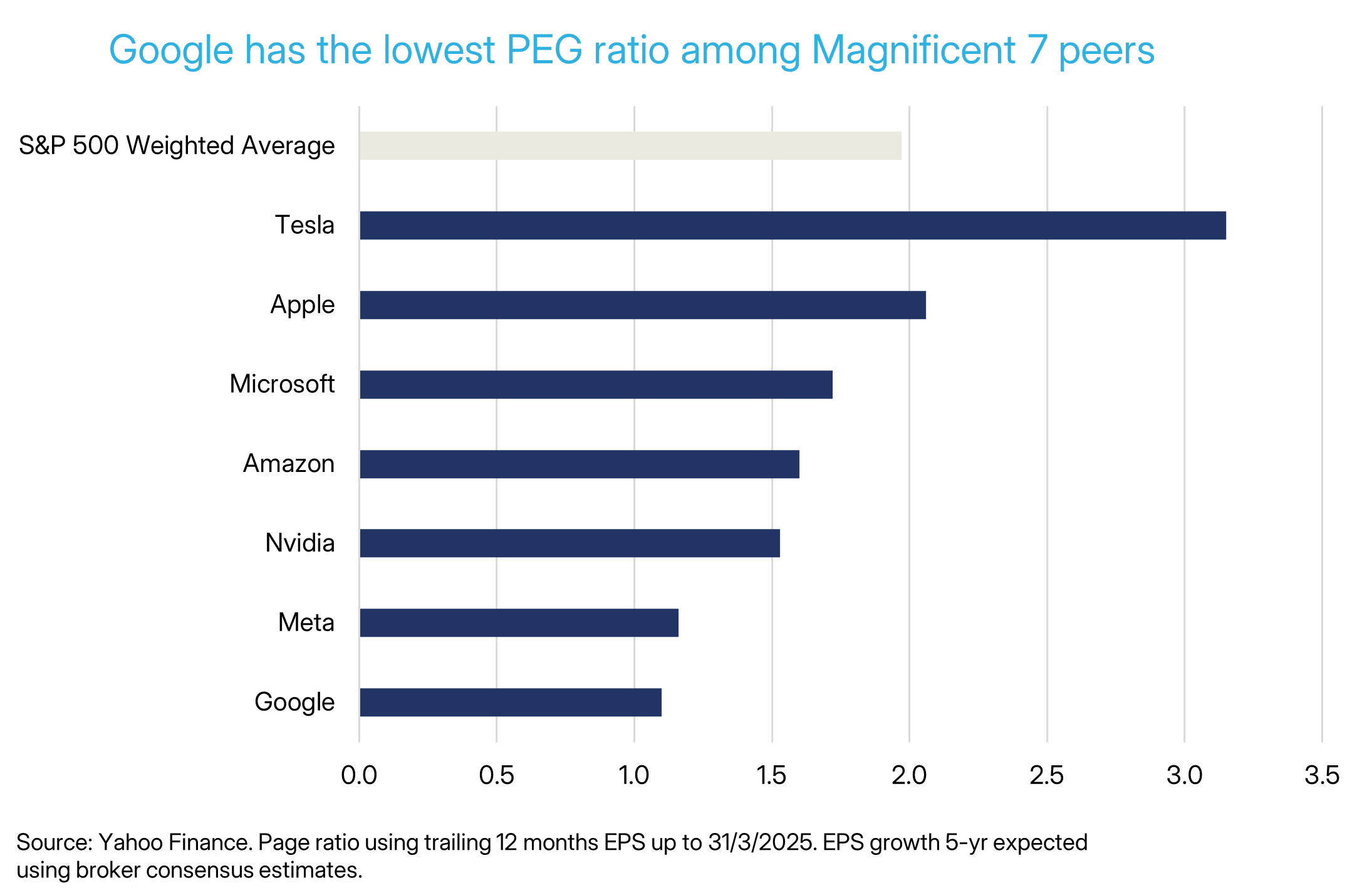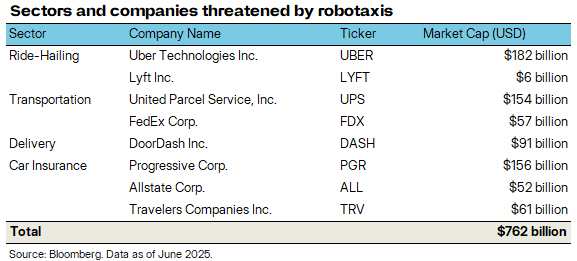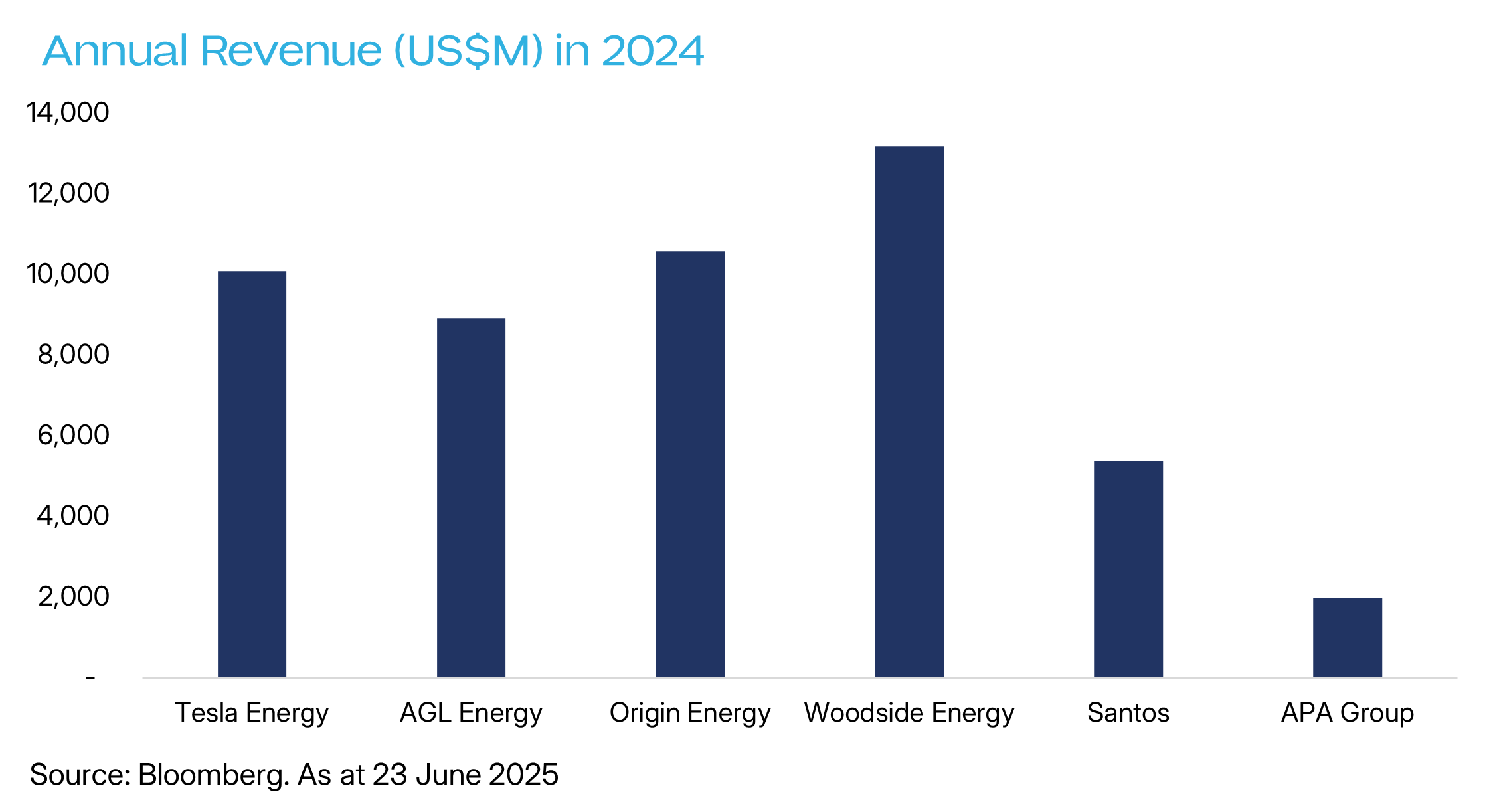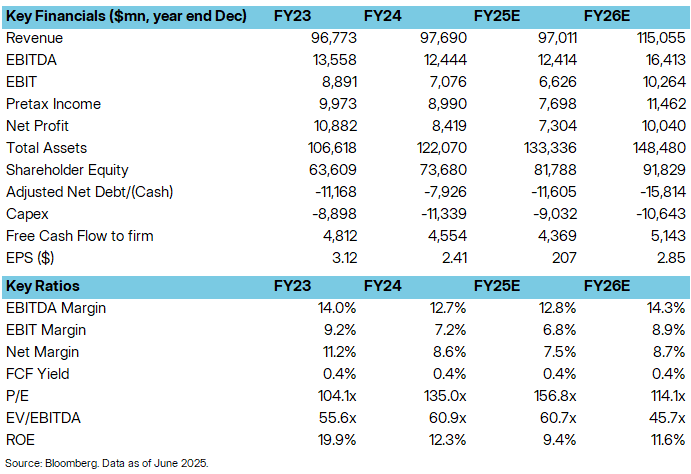Musk’s silence is golden for Tesla shareholders
On Tesla and Elon Musk everyone has an opinion. But in recent weeks something new and important has changed.
For the first time in a year, Musk has maintained a lower profile. This change, while subtle, prompts us to examine its implications.
Since Musk became more political, Tesla has been caught in the fire. We see this in several places.
The level of trust consumers place in Tesla’s brand - always important for consumer-facing companies - has declined, according to consultancy HundredX. This is reflected in the chart below.

Declining brand perceptions have translated directly into falling sales. Tesla's sales have fallen in all three major markets - US, China and Europe – this quarter compared to Q2 in 2024. These declines have occurred despite electric car sales rising overall—particularly in Europe.

This brand damage compounds existing difficulties for Tesla. Crucially, Tesla is under sustained pressure from BYD, China’s national electric car champion.
A key sensitivity for electric car makers is where they sit on the battery cost curve. Batteries are the biggest cost of making an electric car. Companies that produce cheaper batteries can produce cheaper cars.
Here, BYD has widened the gap between itself and Tesla in recent years. It now sits 10 - 20% lower than Tesla on the cost curve. This has allowed BYD to underprice Tesla, forcing Musk to cut prices reactively. This is reflected in the chart below.

All this together has meant Tesla is the worst-performing Magnificent 7 stock this year as of 22 June 2025. And thanks to growth estimates falling, its valuation – as measured by the PEG ratio, our preferred gauge – looks the most stretched among its magnificent 7 peer group.

Tesla’s bull thesis remains strong
Musk staying quiet allows investors to focus on Tesla’s fundamentals and long-term investment thesis once more. Here, there is a lot to like.
Viewed in revenue terms, Tesla is fundamentally a car company. In 2024, 80% of revenue came from car sales. But given how deeply Tesla invests in futuristic technology, it often trades more like a long-dated call option on the US tech sector.
Self-driving cars and robotaxis are what have the market most excited. Musk himself believes they are central to Tesla’s future. It is easy to see why. Musk is trying to build self-driving cars in a much cheaper way than its top competitor, Google-owned Waymo. If this promise is realised, Tesla’s robotaxis could disrupt several industries simultaneously: taxis, ride-hailing apps, logistics, delivery, and car insurance. (Tesla is an insurer).
Currently, major US-listed companies providing these services have more than US$760 billion in combined market capitalisation. This figure rises further when global companies are included. This value could, in theory, shift towards Tesla if it successfully delivers self-driving cars, robotaxis and a supporting app.

Importantly, Tesla’s robotaxis and self-driving cars would be software-based (by contrast, Waymo's are more hardware-based). This means its self-driving systems would be higher margin, which the market also welcomes.
Another bright spot is Tesla Energy — its fastest-growing and highest-margin division in Q1 2025. In 2024, it quietly overtook most of Australia's largest listed energy companies by annual revenue.

Still, Tesla Energy has a formidable moat. Its software (e.g. Autobidder, Powerhub) gives it a clear edge in optimising storage, trading, and load balancing. This is something traditional utilities don’t really do.
Financially, Tesla is unusually robust for a company with so many speculative growth levers. It generates positive free cash flow, carries little debt, and sits on a lot of cash. That mix — scale, ambition, and financial discipline — is rare, perhaps unique, and undergirds why investors see and treat Tesla differently.

Related ETFs
For those wanting to invest in Tesla, the ETFS Magnificent 7+ ETF CBOE: HUGE takes one of the most concentrated bets on the firm of any ETF in Australia. The Fund gives investors exposure to the largest 10 US companies on the NASDAQ Stock Exchange.
4 topics
1 stock mentioned
1 fund mentioned

